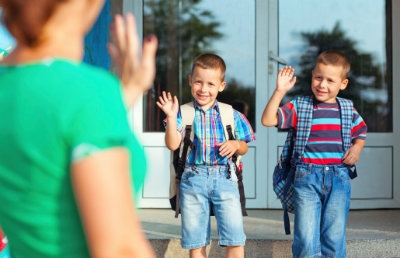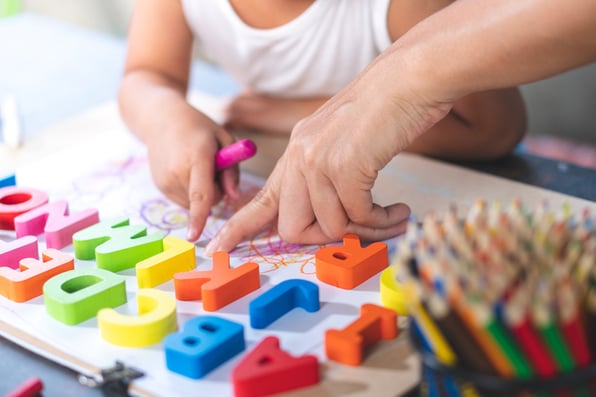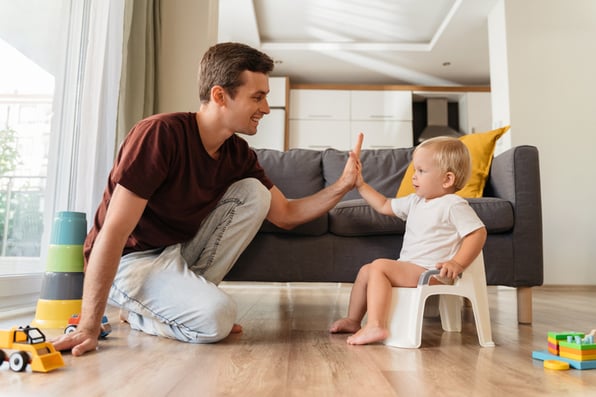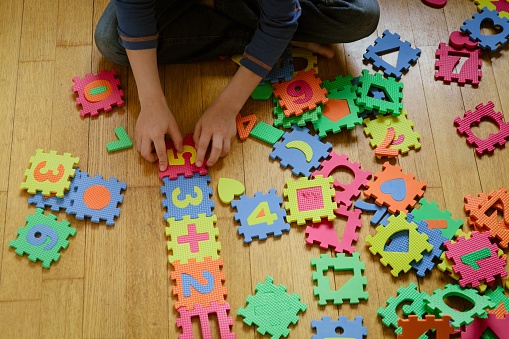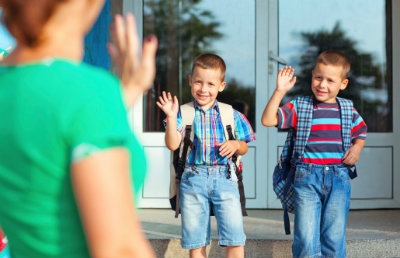 Getting your child prepared for kindergarten is important, without a doubt — but it’s also important to educate yourself on the changing requirements for kindergarten. To help, we’ve gathered plenty of quality information all in one post. Here are six things parents should know about kindergarten readiness.
Getting your child prepared for kindergarten is important, without a doubt — but it’s also important to educate yourself on the changing requirements for kindergarten. To help, we’ve gathered plenty of quality information all in one post. Here are six things parents should know about kindergarten readiness.
1. Age Requirements and Exceptions
First, the Ohio Department of Education shares age requirements and exceptions here. If you’re wondering how old your child should be when starting kindergarten, the short answer is that your child needs to be 5 years old by the start of the school year. School boards can choose to use either August 1 or September 30 as that start date. Some children, of course, are ready for kindergarten before that milestone. If that’s the case for your child, you can request early admission if your child would turn 5 during the upcoming school year.
2. Screenings and Assessments
By November 1 of your child’s year in kindergarten, he or she will be screened for “vision, hearing, speech and communication, medical problems and any development disorders.” None of these can affect kindergarten eligibility, and a parent can sign a statement if he or she does not wish to have his or her child screened in this way.
Your child’s teacher also will perform a kindergarten readiness assessment (KRA), covering six areas:
- Social skills (including the way students learn)
- Language and literacy
- Mathematics
- Science
- Social studies
- Physical well-being and motor development
Teachers are trained to conduct the KRA, and your child will be assessed in three ways:
- Choosing an answer to a question
- Performing a requested task
- Teacher observation in school and at recess
If you have questions about the KRA, the state provides this “Welcome to Kindergarten” video. You also can find more information about the KRA here.
3. Physical Readiness
You can help prepare your child for kindergarten, physically speaking, by providing appropriate materials and activities to help him or her develop motor skills. To help with fine motor skills (needed for your child to be able to write), provide crayons, pencils, markers, scissors and blocks. To help with gross motor skills, encourage him or her to play ball, ride a bike, use playground equipment or run and play outside.
4. Health/Safety Readiness
Make sure that your child has received all required vaccinations, has had a dental and vision exam, knows how to safely cross the street and knows not talk to strangers. It’s also important that your child knows his or her full name, plus address and telephone number, has settled into a healthy bedtime routine and starts the day with a good breakfast.
5. Personal Readiness
Make sure your child can independently use the bathroom, blow his or her nose, tie or Velcro shoes, and use words effectively to convey when he or she is hurt or feeling sick, among other elements of personal readiness. Will your child be able to put on and take off his or her coat without help? Button and zip clothing as needed?
6. Social and Emotional Readiness
Finally, use pre-kindergarten time to teach your child how to follow directions, share with and play with others and take other people’s feelings into account. Teach responsibility through giving age-appropriate chores and offer guidance when needed.
The Ohio Education Department has a handy checklist for items three through six.
At Horizon Education Centers, we provide pre-kindergarten programming for children ages 3 through 5, available in eight locations in Northeast Ohio. We invite you to explore this programming for your child. We’re here to answer any questions you might have.



